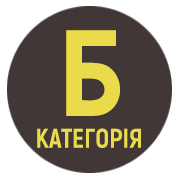LINGUAL REPRESENTATION OF THE MYTHICAL AND MYSTICAL IN THE INDIVIDUAL-AUTHOR WORLDVIEW OF PAUL ZAGREBELNY
DOI:
https://doi.org/10.32782/folium/2025.6.11Keywords:
artistic creation, mythical, mystical, mytheme, mythonome, mythonym, mythical-mystical nameAbstract
The article deals with comprehensive linguistic study of Pavlo Zagrebelny’s creative heritage. Attention is focused on the peculiarities of the worldview and thinking of a specific individual as a representative of the linguistic and cultural community. Through the author’s creativity is represented the worldview of the people, the system of images, symbols, and stereotypes characteristic.The investigation retranslates the typology of ethnolinguistic signs of national culture in the author’s language work. The category of mythical-mystical is understood through the prism of key concepts (mythical, myth, mythology, mystical, mysticism) in retrospective lexicographic practice. Debatable points in the interpretation of the terms “mythologeme”, “mypheme”, “myphonym” are outlined, taking into account literary and linguistic approaches. Linguistic definitions of the relevant terms are proposed, their links with terms such as “mythical-mystical vocabulary” and “mythical-mystical naming” is demonstrated. From the point of view of linguistics, “mypheme” or “myphonomeme” is interpreted as a nominative unit with zero denotation, representing an unreal object, an imaginary construct, an element of the mythical-mystical concept sphere, which is devoid of clearly defined formal- logical and abstract reflection. The concept of “mypheme” (“myphonomeme”, “mythical-mystical name”) and “myphoneme” are related as general and partial: any mythonym is a mythical-mystical name, but not every mythic- mystical name is a mythonym. “Mythonym” is interpreted as a proper name that individualizes an element of the mythical-mystical space, nominates mythical-mystical characters as the results of mythical ideas and worldview.
References
Василенко, А.М. (2003). Українська міфологічна лексика в художній літературі ХІХ ст. : дис. … канд. філол. наук. Київ. 213 с.
Войтович, В.М. (2002). Українська міфологія. Київ : Либідь. 662 с.
Голікова, Н.С. (2019). Художній дискурс П. А. Загребельного: лінгвокогнітивний і прагмастилістичний аспекти : дис. … д-ра філол. наук. Дніпро. 530 с.
Доманицький, В. (1906). Словарик. Пояснення чужих та не дуже зрозумілих слів. Київ : Друкарня С. А. Борисова. 128 с.
Желехівський, Є. (1886). Малорусько-німецький словар: у 2-х т. Т. 1: А–О. Львів. 598 с.
Ковалів, Ю.І. (2007). Літературознавча енциклопедія: у 2-х т. Т. 2: М–Я. Київ : ВЦ «Академія. 624 с.
Словник іншомовних слів (2000) / уклад. Л. О. Пустовіт, О. І. Скопненко, Г. М. Сюта, Т. В. Цимбалюк. Київ : Довіра. 1018 с.
Словник української мови (2017): у 20 т. Т. 8. Л – Мішурний. Київ : Наукова думка. 994 с. URL : https://sum20ua.com/?wordid=0&page=0
Строкаль, О. (2020). Вербалізація міфологеми вогню в поезії Олексія Довгого. Актуальні питання гуманітарних наук, Вип. 30. Т. 3. С. 103–108.











